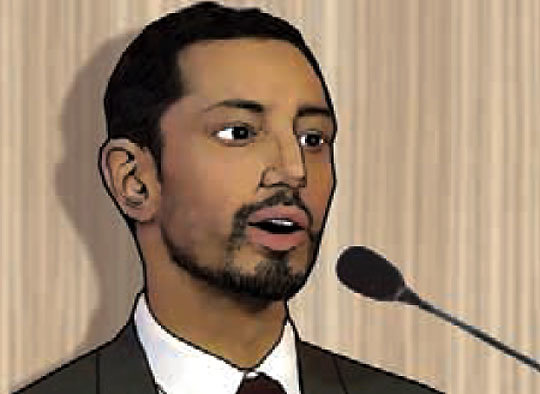Wrestling of stories
Wrestling of stories
Posted October. 03, 2018 07:08,
Updated October. 03, 2018 07:08

Narratives are often engaged in a tussle. It couldn’t be better if the right side always wins, but this is not the case in reality. A power struggle between stories that frequently occurs in real life has been cuttingly pointed out by a person who, ironically, appears in films: Pakistani-British actor and rapper Riz Ahmed, who is also featured in a film “Venom” released Wednesday.
In early March last year, Ahmed gave a speech on “diversity” at the House of Commons. “Have you seen some of those ISIS propaganda videos? They are cut like action movies. Where is the counter-narrative?” He spoke of the importance of representation in the media, pointing out that there is no narrative to counter rising extremism that appeals young people in British society.
“If you’re used to seeing yourself reflected in culture, I really want you to take a minute to understand how much it means to someone who doesn’t see themselves reflected back. Every time you see yourself in a magazine or on a billboard, TV, film, it’s a message that you matter, that you’re part of the national story, that you’re valued.”
He called for the society to be inclusive towards people who fail to be represented because of race or religion or those portrayed only in certain ways. By not choosing to be inclusive, he said, the society risks losing young people to extremist groups that promote their members as the “version of James Bond.” To Ahmed, it seemed that his country was losing in the fight of stories.
The actor stressed that to win the battle, all citizens should be embraced regardless of race and religion, and they should be part of the national story. Every single word of his is true. His speech would also resonate in countries that are sticking to old, self-centered stories in this multicultural world. Korea is hardly an exception. A question lingers: What kind of narratives are our media producing?



![‘건강 지킴이’ 당근, 효능 높이는 섭취법[정세연의 음식처방]](https://dimg.donga.com/c/138/175/90/1/wps/NEWS/IMAGE/2026/01/18/133181291.1.jpg)



